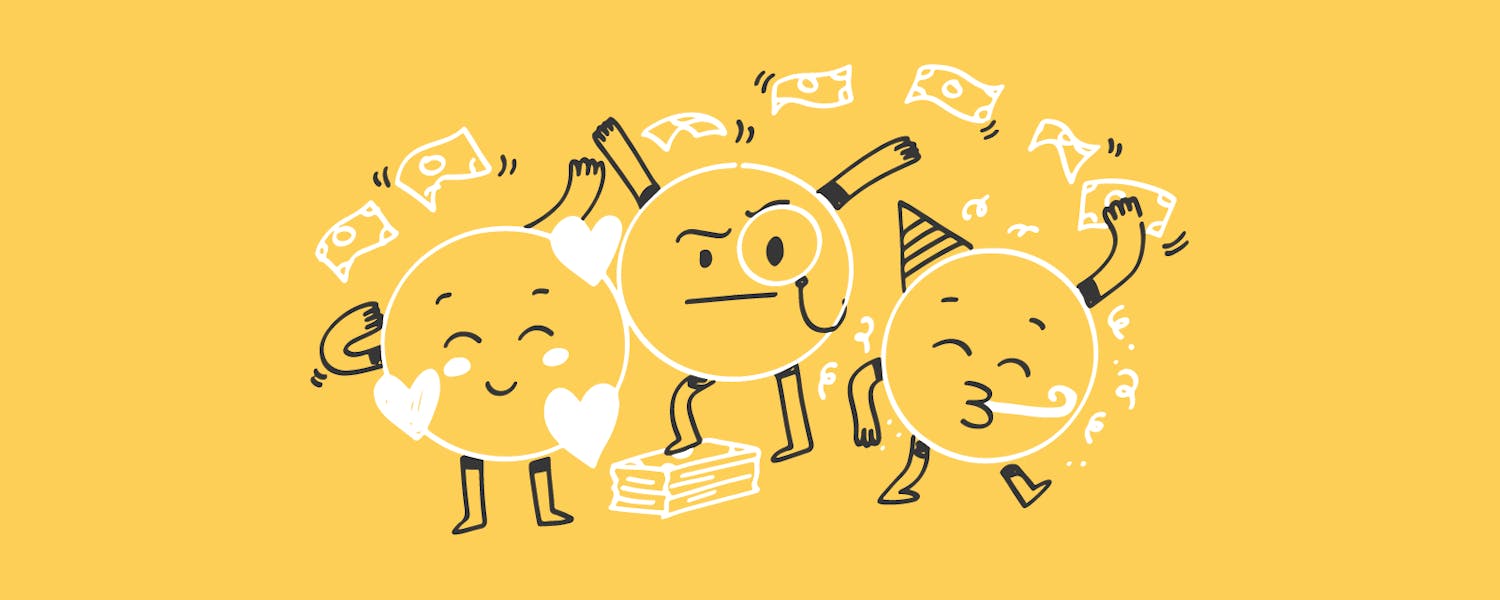9 Times Your Mood Makes You Spend
We tell ourselves all the time that we should save money, but perhaps we should take a moment to notice the stimuli that makes us want to spend our money. We dare you to identify if you have any of the 9 spending attitudes that leave you poor.
1. You’re drunk, hungry (or both)
Let’s face it, when we are out partying we tend to be more generous, and we drop the green bucks more easily. A study found that Americans spend an average of $139 USD on “unplanned alcohol shopping sprees”, with men spending $233 USD, four times more than women. On the other hand, hunger also encourages us to buy more to satisfy our cravings; An interesting study at the University of Michigan revealed that people who are hungry and go shopping, tend to spend 60% more than those who are not hungry. According to the Global Drug Survey 2019, 70% of respondents regretted getting drunk over the last 12 months. Possible solutions:
- Only take the cash you plan to spend.
- Give your wallet to a sober friend.
- Pay the bill beforehand and don’t buy again.
2. You feel sad or angry
When you’re in an emotionally unstable state, shopping has been shown to help you regain your sense of control and happiness. However, the effects are only short-term and if you think that “therapy shopping” will help you get out of the dark hole, you’ll end up with a horrifying bank statement to help you wipe away your tears (and snot). Possible Solutions:
- Do exercise. It’s therapeutic and one of the habits of millionaires.
- Read a self-improvement book
- Talk to a friend or a therapist and learn to manage your emotions.
3. You are lonely
Shopping to counteract the solitude is effective over time, but it creates a vicious circle that doesn't solve your feelings, as explained by a study published in 2013 in the Journal of Consumer Research that, in a nutshell, says that material purchases cannot meaningfully fill the gaps in your life, they only work like a poorly done street patch.
Possible solutions:
- Work on your loneliness in other ways, there are books for that like “How to be alone”.
- Find the good perks in being alone, there’s a lot of information on the internet.
- Join a co-curricular class or a team that involves hanging out with other people.
Material purchases cannot meaningfully fill in the gaps in your life, they only work like a poorly done street patch.
4. “I deserve this”
We live in the era of indulging our personal pleasures, “a little treat”, “prizes” or whatever you like to call them, and with this we usually justify our expenses.
Possible Solutions:
- Why the hell not? Learn about Delayed Gratification.
- If you think “I deserve this”, confront the thought with the question:
“Does this expense take me closer to my main goal, or against any progress?” This will help you make a decision.
3. Keep it balanced: don't spend for each obstacle conquered during the day.
5. You think it’s an “impossible to resist” offer
Sales that scream “buy one and get one completely free” or “50% off for a limited time” make us feel like we’re getting a bargain. But Sam Sharf explains that a real offer is only one if you were planning to buy the item anyway. If you haven’t used the stuff you bought on sale to date, we're sorry to tell you, but: you fell for the marketing play and bought for the thrill of it.
Possible Solutions:
- Don’t get carried away by the offers, only buy things that you have planned for.
6. You feel peer pressure
In adults, there’s also social pressure: all of your friends or neighbors have something, so you end up wanting it too. The question is, do you really need it? And a better question would be, can you afford it? Perhaps what you don’t realize is that behind all the luxurious lifestyle, those friends are living in debt.
Possible solution:
- Don’t compare yourself to others, understand that we are all different.
7. You have spare money, so you spend
It’s a natural impulse: when you receive your payment or an unexpected income arrives, it’s easier for you to perceive that you are wealthy and want to spend money. Thus, you end up buying unplanned vacations, buying a new car, or simply going out to eat more often.
Possible solution:
- When you receive money, distribute it according to a budget.
- When you receive money, pay your debts first.
- When you receive money, put it in a savings fund.
8. You let yourself go
Imagine that you feel adrenaline, but instead of running, you have money to counteract the feeling. A 2005 study found that when someone goes shopping, their brain releases dopamine, the happiness hormone. Thus, it’s easy to associate happiness with shopping, but the truth is that this feeling is momentary, and you will want to continue shopping to maintain the high.
Possible solution:
- Don’t fool yourself.
- Generate endorphins with other experiences, like exercise!
9. You want comfortable solutions
Services that save you time and effort will always cost you more. A clear example is food, express delivery services or paying someone to clean the house. We are not against you using these services, the key is to know when it is worth paying for.
Possible solution:
- Learn to enjoy what seems “boring” to you.
- Cooking can be fun!
How many spending moods do you have? Tell us your results and experiences!
Article translated by Rodolfo Schaefer





